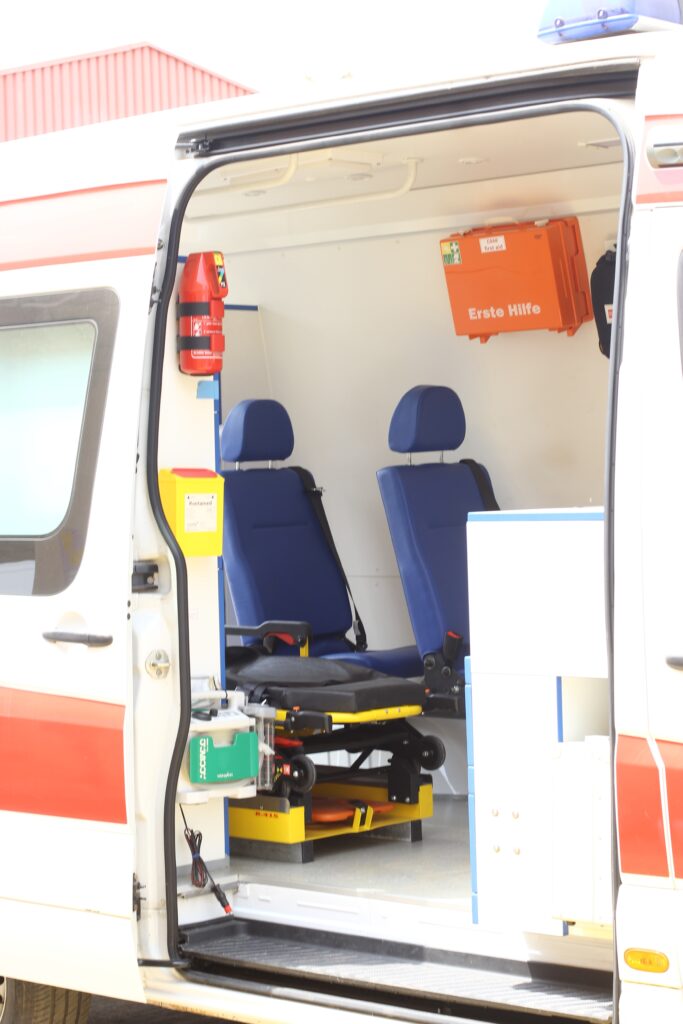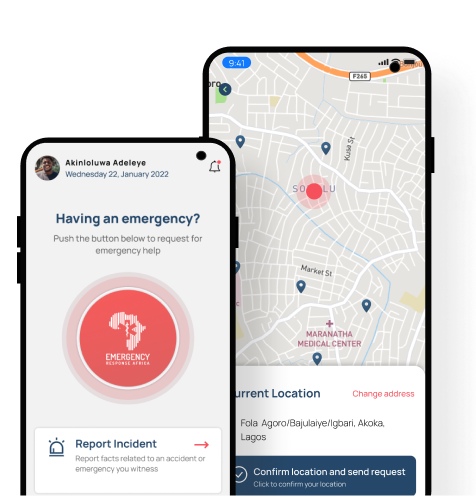The quality of healthcare and emergency services in Nigeria determines the quality of life and safety citizens enjoy. In Nigeria these 2 factors exist but operate below standard; The healthcare system has 0.5 hospital beds per 1000 people, making it difficult for most people living below the poverty line, to secure hospital beds.
With healthcare systems performing poorly, emergency services in Nigeria don’t fare better.
Till date, Lagos state emergency ambulance service remains the most robust in the country.
It functions through these major bodies responsible for managing emergencies:
· LASEMA.The management body for state agencies involved in emergency response in the State.
· LASEMBUS: The arm of the emergency service delivery in Lagos responsible for transporting first responders from location to location. There are 15 lasembus stations in Lagos and 5 are to be added soon.
A report, however, suggests that ambulance services in Lagos are unable to service 87 percent of distress calls reaching them and most stations have been reconstructed for other purposes
Thus, if you ask: “is there an ambulance service in Nigeria?” Your likely answer would be no, despite the presence of state-run services.
How important are emergency services in Nigeria?
Emergency services are fast-paced services rendered to deal with emergencies as they occur.
Countries with robust emergency care have citizens who feel confident in the face of emergencies and enjoy reduced mortality rates.
In Nigeria however, the majority of citizens show no confidence in ambulance services, preferring to deal with emergency matters themselves.
But it’s better in other countries
Countries like Japan with sophisticated vehicles and Dubai with hyper-speed ambulance vehicles are on a gold standard in terms of ambulance services.
The reason for their success can easily be traced to these two elements
- Government interest; emergency services make great strides where they are considered a priority. In the UAE the government is reported to inject $6.5 million into the provision of ambulance services alone while in Nigeria, there are currently less than 1,000 ambulances serving an enormous population of over 200 million people
- Infrastructure. An ambulance with the speed of light would be rendered immobile on bad roads or by traffic jams, or by a population not sensitized to the need to give way to ambulances. In the Uk, this problem is solved by allowing Ambulance vehicles access bus lanes to escape traffic and transport victims quickly.
In Contrast: Nigeria’s emergency response times can take an hour due to poor roads and even quick lanes like the BRT are a no-go for emergency vehicles during traffic.
ERA is solving these problems with efficient ambulance services in Lagos, so that emergencies don’t become fatal
Problems are meant to be solved and in sub-Saharan Africa where emergency services are still behind, eye-catching innovations have been made such as the Uber ambulance service in Tanzania and camel ambulances in Ethiopia to allow first responders access to pastoralists where vehicles can’t.
Emergency Response Africa is one such innovation providing needed emergency services in Nigeria. Our vision is to upscale emergency services in Nigeria and reduces the number of preventable deaths.
We currently offer an efficient ambulance service in Lagos capable of a 10-30 minutes response time.
Our innovative motorcycle ambulance service solves traffic challenges by providing first responders on motorbikes who arrive at the scene promptly. and stabilize a situation while waiting for an ambulance bus to arrive.
You can enjoy these services by
- Having our toll-free number close to you
- Downloading via our Signal by ERA App; simply click and we know where you are!
You can download the app now via iOS or android and stay emergency ready.



